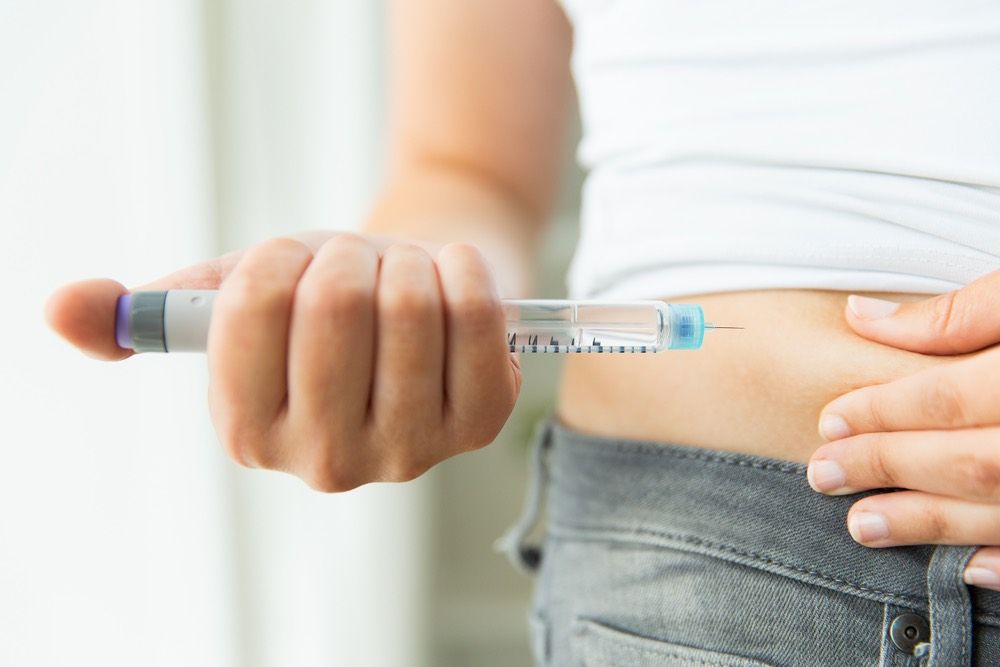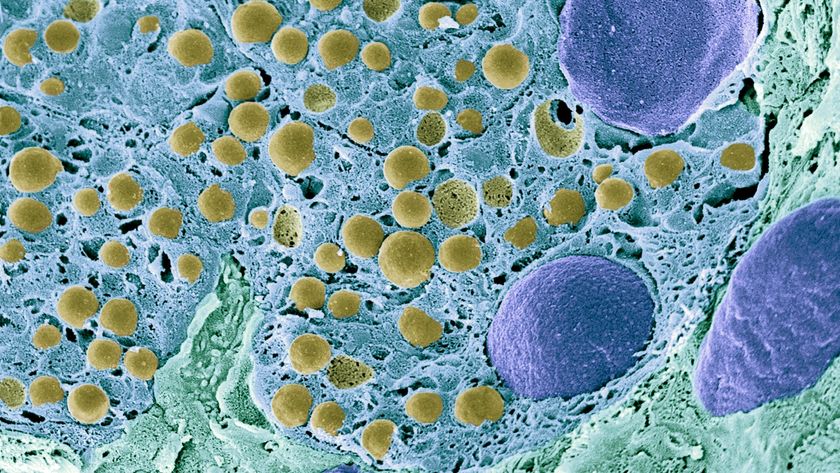Type 2 Diabetes: Why Insulin Therapy Is So Difficult to Manage

This article was originally published at The Conversation. The publication contributed the article to Live Science's Expert Voices: Op-Ed & Insights.
So, your doctor told you that you need insulin therapy for your Type 2 diabetes.
This is a common problem and likely to be more so in the coming years. About 29 million people in the U.S. have Type 2 diabetes, and another 86 million have prediabetes. About one in four people with Type 2 diabetes is on insulin therapy, and another one in four likely needs to be.
What does it mean to be on insulin therapy, exactly? And whose fault is it? Could you have prevented this? Will insulin actually work? These are frequent questions people who need insulin therapy ask, and, as someone who has treated people with diabetes for years and has been working to improve its effectiveness, I will do my best to help you answer these questions. I also have been working to develop a better way to personalize dosing for insulin.
Insulin therapy for Type 2 diabetes
Diabetes is a condition in which your pancreas fails to secrete a sufficient amount of insulin to help you to maintain normal blood glucose, or sugar in the blood, which is transported to various parts of our bodies to supply energy.
There are many causes of insulin deficiency, but the most common is Type 2 diabetes. The main risk factors for Type 2 diabetes are family history, weight and age.
In fact, most overweight or obese people in the Western world will never develop diabetes. Weight is a very important, yet misunderstood, risk factor for diabetes. The foods you eat are usually less relevant than the weight itself. The American Diabetes Association, for example, recommends that you limit the amount of sugary drinks you drink, including sodas, fruit punches and even sweet tea.
Sign up for the Live Science daily newsletter now
Get the world’s most fascinating discoveries delivered straight to your inbox.
Further, most people in the world with Type 2 diabetes do not fulfill the diagnosis criteria of obesity; rather, their weight exceeds the capacity of their pancreas to maintain sufficient insulin secretion. Your pancreas may have less insulin-secreting capacity than your neighbor's, making you more likely to get diabetes when you gain weight.
Type 2 diabetes is a progressive condition as, over time, the pancreas tends to secrete less and less insulin. In the early stages, when your pancreas can still secrete some level of insulin but not enough to maintain normal blood glucose, losing 5-10 percent of your body weight and more importantly, keeping that weight off, can slow the progression of your insulin deficiency.
Even with weight loss, in the majority of cases, diabetes does eventually progress to the point where you will need to use medications. The majority of diabetes medications (except for insulin replacement therapy) can work only if your pancreas is still able to secrete some insulin.
Due to the progressive nature of the disease, you may require more drugs over time, and at some point, you may become so insulin-deficient that none of them is sufficient for maintaining healthy blood glucose. At that point, insulin replacement therapy is needed.
Keeping glucose levels at the therapy goal is essential
The stage in which you become overtly insulin-deficient typically occurs about 10 years after the diagnosis. There is no evidence to suggest that you can totally prevent this progression. Although keeping a stable weight and being physically active are considered beneficial to overall health, these modalities have very limited impact on advanced stages of diabetes, when your pancreas is secreting little to no insulin.
Having no insulin is damaging and dangerous. Without insulin, your body breaks down necessary fats and proteins that are important parts of your body, causing damage to many organs. The vast majority of diabetes complications occur when patients with advanced diabetes are exposed to elevated blood glucose for a considerable period of time.
If I could give you one piece of advice, it would be to avoid elevated glucose at all cost. If you or a loved one has been diagnosed with diabetes, you are probably familiar with what we call hemoglobin A1c. It is a measure of your average recent glucose levels. Do not let it go up. If you have come to the point that insulin is needed to maintain a healthy glucose level, so be it. It is not your fault that you have arrived at this point; you simply need the correct treatment for the actual stage of your Type 2 diabetes.
So even when insulin therapy is needed at a certain point in the disease's progression, it does not solve patients' health problems. That is because most patients who use insulin therapy do not achieve their treatment goals in maintaining appropriate level of glucose levels in the blood. This is quite surprising, given its benefits and the fact that insulin therapy has existed for almost a century.
Insulin does not have an upper dosage limit, and there is no glucose level that it cannot reduce. Unlike most other drugs, it has only one main adverse effect, namely hypoglycemia, which occurs when glucose levels drop too low. Further, the majority of insulin users are adherent to insulin injections and glucose measurements. Why don't they achieve their treatment goals?
Frequent adjustments of insulin dosage is critical
The problem is not with the patient or the doctor. The problem is the therapy itself. Unlike most other drugs, insulin requirements are very dynamic and need frequent dosage adjustments to overcome constant changes in insulin needs. The range of overall insulin requirements is very wide. No one knows if you need 30 units per day or 300. When your doctor gives you insulin, he or she tries to give you as much as your own pancreas used to secrete before it failed. To know how much insulin you need, your doctor typically starts with a low dose and goes up gradually.
Thus, many adjustments will be required before your doctor knows how much insulin to give you. But it doesn't end there. Your insulin requirements constantly change. Over time, you may need a different dosage. To make insulin therapy effective and safe, you may need a dosage adjustment about every week. Unfortunately, there are so many insulin users that our doctors don't have the time to adjust the dosage this frequently.
Please don't despair; there is technology that can help you to adjust the dosage more frequently. Companies have developed technologies that enable insulin dosage to be as dynamic as needed to make it effective for you.
In summary, it is not your fault that you need insulin therapy. It is just another mode of therapy that you need when your pancreas fails. The main challenge is to adjust your dosage frequently. Fortunately, solutions are becoming available to facilitate this.
Israel Hodish, Associate Professor, University of Michigan
This article was originally published on The Conversation. Read the original article.



